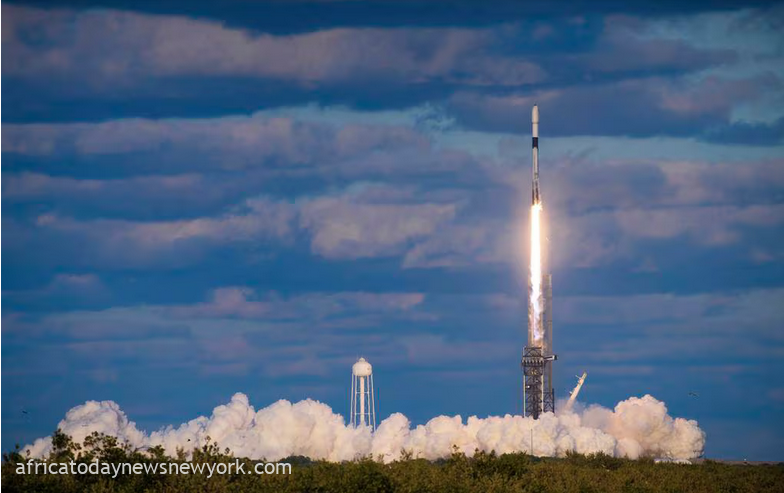Seoul’s defense ministry announced Monday that South Korea‘s second indigenously developed surveillance satellite has been effectively deployed into orbit, following its launch from a SpaceX Falcon 9 rocket at an American space facility.
Seoul verified in December the prosperous liftoff of its primary military surveillance satellite, hitching a ride on Elon Musk’s SpaceX Falcon 9 rocket.
“Our military’s second reconnaissance satellite successfully separated from the launch vehicle at around 09:02 (1202 GMT) and entered the target orbit,” the defence ministry said in a statement.
“We plan to confirm whether the satellite is operating normally through communication with overseas ground stations,” it added.
These latest developments amplify the space race on the Korean peninsula, spurred by North Korea’s launch of its first military reconnaissance satellite in November of the previous year.
Seoul’s Yonhap news agency reports that the South’s inaugural satellite has already beamed high-resolution images of central Pyongyang to authorities in Seoul, with plans to kick off its full operational phases as soon as June.
To bolster its monitoring capabilities over North Korea, Seoul has outlined plans to launch a total of five military surveillance satellites by 2025.
Once all five enter orbit and commence their missions, the South Korean military will have the capability to monitor key facilities in North Korea using imagery sent around every two hours, according to a report by Seoul’s government-run broadcaster KTV.
Read also: Operations Halted As South Korea Doctors’ Strike Continues
Pyongyang this year has declared South Korea its “principal enemy”, jettisoned agencies dedicated to reunification and outreach, and threatened war over “even 0.001 mm” of territorial infringement.
On the other hand, North Korea alleges that its spy satellite has captured images of a US naval base at Pearl Harbor in Hawaii and various significant targets across South Korea.
Pyongyang’s successful launch of the “Malligyong-1” represents its third attempt to deploy such a satellite into orbit, following two unsuccessful tries in May and August of the previous year.
Seoul has accused North Korea of receiving technical aid from Moscow for the launch, allegedly in exchange for providing weapons to support Russia in its conflict with Ukraine.
Analysts have suggested that successfully deploying a functional reconnaissance satellite into orbit would enhance North Korea’s intelligence-gathering abilities, especially concerning South Korea, and furnish vital data in the event of any military confrontation.

